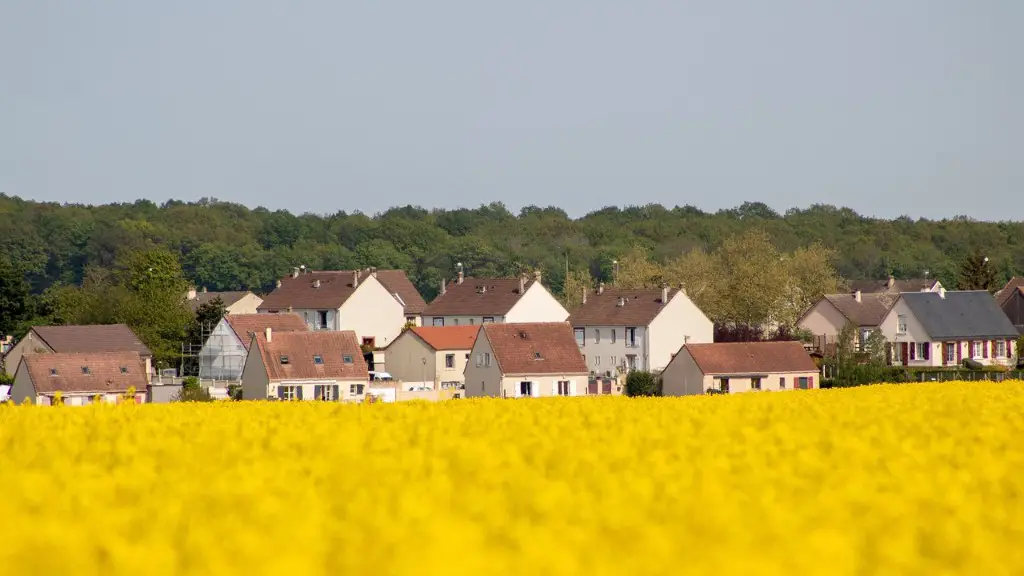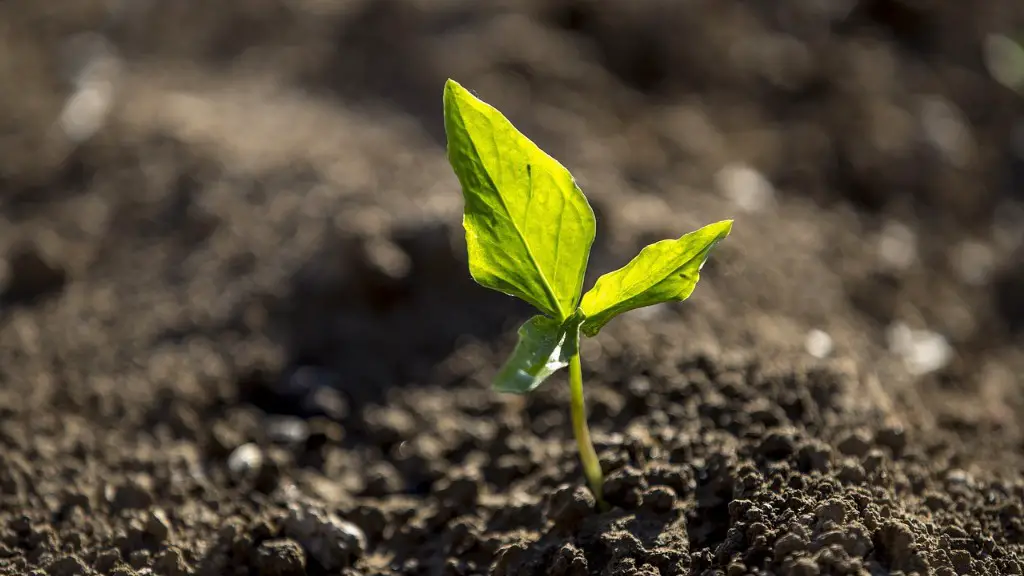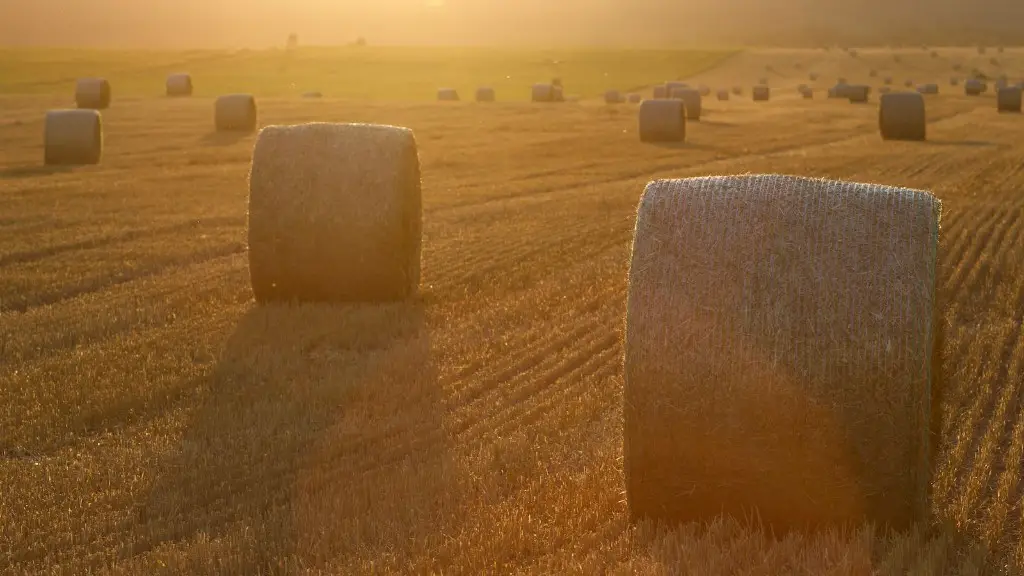Today, many people have started to take an interest in exploring the culture of agriculture. Cultural practice in agriculture is an intricate and stimulating area of research that delves into the history, dynamics, and the many complexities of interactions between human beings and the environment. Here, we will explore meta structures, social behaviours, top-down approaches, and bottom up approaches. We will also discuss the emerging non-formal agricultural practices as part of cultural practice in agriculture.
Cultural Interactions and Environmental Dynamics
Cultural practice in agriculture is complex and incorporates many microcosmic processes. It speaks to the fundamental interaction between humans and their environment, and the changes that occur throughout this interaction over time. Here, we will explore how cultural practice in agriculture shapes the environment, and how the environment shapes culture. We will look at the tangled web of relationships between individuals and their environment, in terms of the production of food, energy, and goods.
The Different Actors in Agriculture
Agricultural practice has a range of actors, both human and non-human, that each contribute something to the practise. We will explore the roles of communities, agricultural workers, seed and traditional knowledge holders, land stewards, producers, and researchers. By doing this, we can enrich our understanding of how cultural practice in agriculture works and how it shapes the environment around us.
The Complexity of Cultural Change and Evolutionary Processes
The notion of cultural practice in agriculture is often intertwined with the idea of change and evolution. Changes in human behaviour, structure, and beliefs shape how people interact with the environment, and the subsequent chain of events that follow these changes. Furthermore, we will explore how cultural practices can evolve and transform over time, creating an incredibly intricate and ever-evolving pattern of behaviour.
Integrating Traditional Knowledge with Modern Technology
Due to the complex nature of cultural practice in agriculture, we must look to incorporate both traditional knowledge and modern technology in order to obtain a holistic understanding of the practise. Traditional knowledge, be it orally passed down or documented, often has invaluable insight into crops and growing patterns that modern technology may otherwise overlook. Integrating traditional knowledge and modern technology allows us to get the best of both worlds, enriching our understanding of the agricultural practise and allowing us to innovate in the right direction.
The Role of Non-Formal Practice in Agriculture
Non-formal practices in agriculture, also known as agroecology, is an essential element of cultural practice in agriculture. Here, we will explore how non-formal practices can lead to increased food security, improved soil health, healthier crops, and increased livelihoods for communities. Furthermore, non-formal practices help to build capacity and resilience for indigenous communities and farmers, introducing them to innovative methods for growing and harvesting.
Agricultural Innovations and Farmers’ Rights
Agricultural innovations, such as new methods for growing or harvesting, are critical for the success of modern agricultural practices. Innovative farmers are often under-acknowledged, and their rights, such as the right to save, share, and exchange their own seeds, are often disregarded. Here, we will explore the importance of agricultural innovations and the underlying importance of farmers’ rights.
Innovative Extension Services
Innovative extension services, such as agroecology-based educational methods and learning-by-doing models, are changing the way farmers and other actors in agricultural production learn and work. Furthermore, the use of new technologies such as the internet of things (IoT) and artificial intelligence in agricultural practice is also adding another layer of complexity to the way farmers interact with their environment. Here, we will delve into the potential of such services and how they can help create a positive ripple effect throughout the world of agricultural practice.
Transformative Dialogue on Agricultural Practices
Agricultural practice is deeply intertwined with the wider social and political ecosystem. Here, we will explore how certain policies and regulations can influence agricultural practice, and how the voice of those engaged in agricultural production is often silenced or dismissed. We will also discuss the importance of transformative dialogue, and how this can shape agricultural practices in a more inclusive, equitable, and meaningful way.
Emerging Ideas in Agricultural Practice
Cultural practice in agriculture not only entails a range of traditional processes, but also emerging ideas from the globalized world. We will explore how the increasingly diverse influx of ideas are influencing the way people practice agriculture and the role of technological advances in reshaping the traditional practice. Furthermore, we will discuss how grassroots initiatives are beginning to redefine the purpose of agricultural production and its implications for the environment.
Recent Changes in Agricultural Practices
It is not just emerging ideas that are influencing cultural practice in agriculture, but recent changes as well. We will explore how data-informed business models, such as precision farming and vertical farming, are disrupting the traditional agricultural system. Furthermore, we will discuss how the convergence of traditional agriculture with new technologies is starting to redefine the boundaries of agriculture.
Mainstreaming Sustainable Agriculture
Finally, we will look at how sustainable agriculture has become a more mainstream form of agricultural practice. We will discuss how sustainable agriculture can help fight climate change and reduce its impact on the environment, as well as how it can benefit farmers and the wider agricultural system. Furthermore, we will look at how sustainable agriculture can be an effective tool for empowering marginalised communities.



